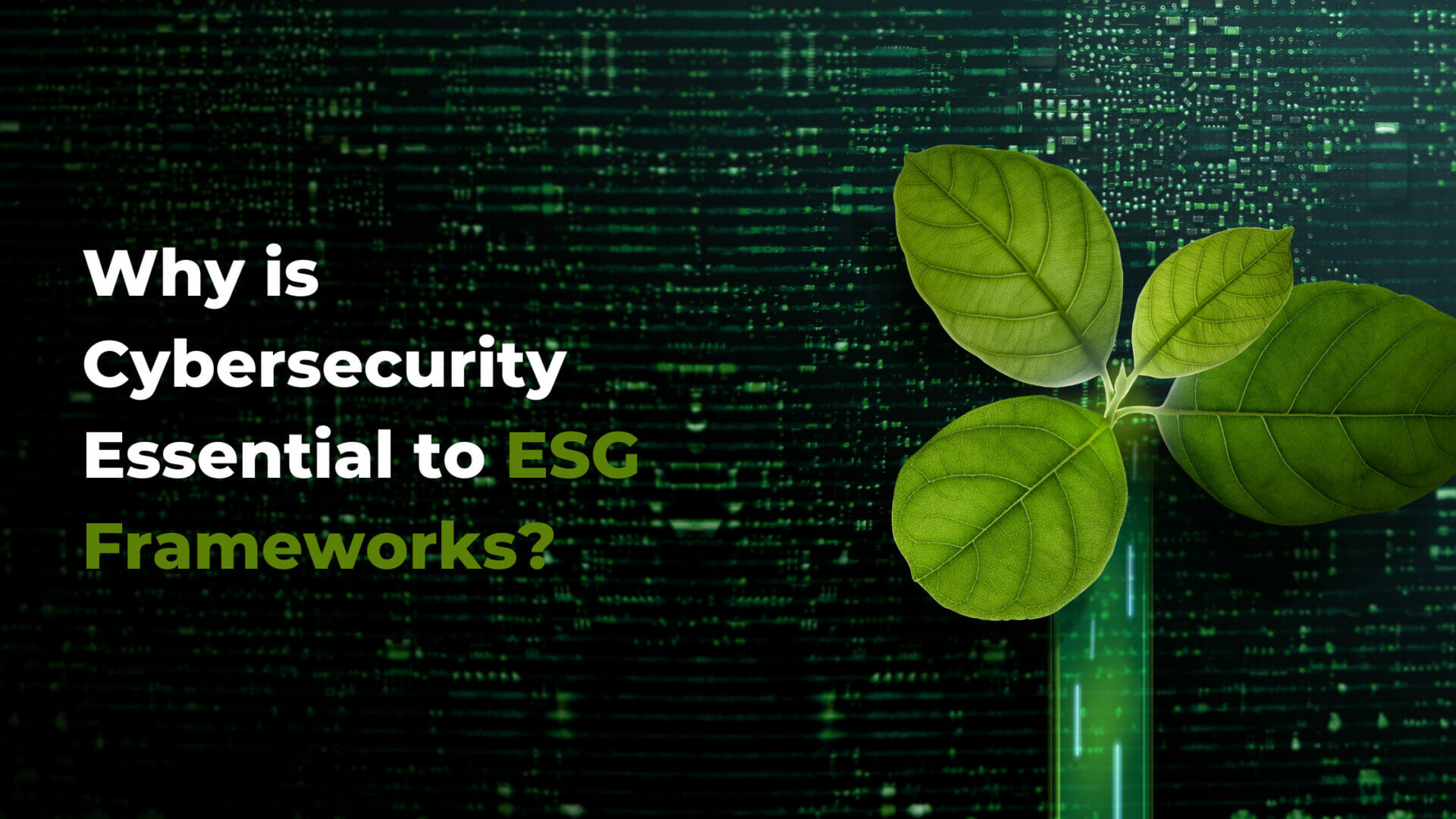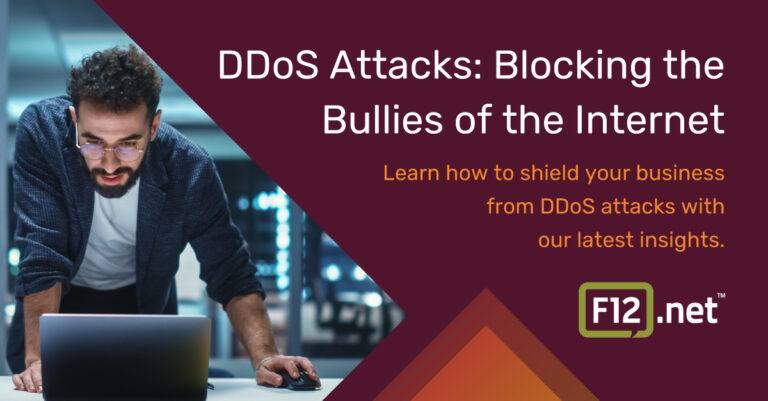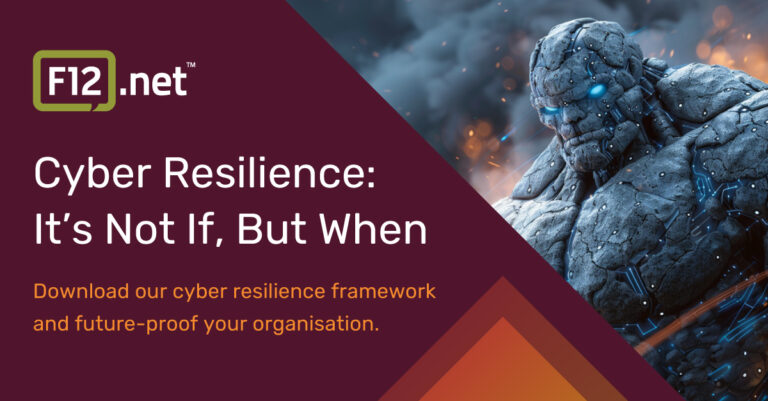In our interconnected world, where data breaches and cyber threats seem to lurk around every corner, safeguarding cybersecurity is a critical business priority. But did you know that cybersecurity goes beyond mere data protection? It’s also a pillar of Environmental, Social, and Governance (ESG) frameworks. Join us as we dig into the reasons why cybersecurity is essential for your ESG framework, and why organizations often place it near the top of their ESG priority list.
What Is ESG?
ESG refers to Environmental, Social, and Governance factors that investors, stakeholders, and society consider when evaluating a company’s sustainability and ethical practices. Environmental criteria encompass a company’s impact on climate change, resource usage, pollution, and waste management. Social factors include a company’s treatment of employees, customer relations, community engagement, and diversity initiatives. Governance focuses on a company’s leadership, transparency, board structure, and shareholder rights. ESG frameworks evaluate these aspects to gauge a company’s long-term value and risk management.
How does Cybersecurity Impact ESG?
Cybersecurity plays a vital role in ESG frameworks for several reasons. Data breaches and cyber incidents often have severe implications for businesses, harming profitability and sustainability. The costs associated with remediation, legal actions, reputational damage, and customer churn can be significant. According to a report by IBM Security and Ponemon Institute, the average cost of a data breach was $4.35 million USD in 2022.
Cyber incidents can directly impact a company’s social reputation and stakeholder trust. Breaches involving sensitive customer data erode trust and can lead to a loss of customers, tarnished brand reputation, and decreased market value. Companies that fail to protect their customers’ data face public scrutiny, negative media coverage, and regulatory penalties.
Moreover, cybersecurity is intertwined with corporate governance. A company’s leadership and board are responsible for ensuring that robust cybersecurity measures are in place. Failure to implement adequate cybersecurity controls and procedures can expose a company to legal and regulatory repercussions. Shareholders and investors increasingly consider cybersecurity practices a key indicator of effective corporate governance.
Examples of the Importance of Cybersecurity in ESG
- Financial Impact: Cyberattacks can have a significant economic impact on companies and their investors. Take an example highlighted by J.P. Morgan, a multinational consumer goods company had a 20% hit to its stock price and $1.4 billion loss in market value after a data breach. Such incidents demonstrate the direct correlation between cybersecurity breaches and financial performance, making it a crucial aspect for investors to consider within ESG frameworks.
- Investor Concerns: Institutional investors have identified cybersecurity as a top ESG concern. The KPMG Cyber Security Report on ESG highlights that 94% of surveyed institutional investors are worried about the cybersecurity risks faced by companies they invest in. Investors are demanding companies demonstrate how they protect sensitive data, intellectual property, and customer information.
- Regulatory Compliance: Regulatory requirements related to cybersecurity are becoming more stringent, amplifying the importance of cybersecurity within ESG frameworks. RBC Global Asset Management issued a report emphasizing how non-compliance with data protection regulations can result in significant fines and reputational damage. For instance, the European Union’s GDPR (general data protection regulation) imposes penalties of up to €20 million or 4% of global annual turnover for organizations that fail to protect personal data adequately. Compliance with such regulations is, therefore, essential for maintaining ESG credibility.
- Supply Chain Risks: Cybersecurity risks extend beyond individual companies and can impact the entire supply chain. The interconnected nature of business ecosystems means that a cyber breach in one organization can have a ripple effect on partners, suppliers, and customers. The KPMG report cites the NotPetya ransomware attack, which targeted a Ukrainian software company but caused significant disruptions and financial losses for numerous global organizations. Understanding and mitigating supply chain cyber risks are crucial components of ESG frameworks.
- Stakeholder Trust and Reputation: Cybersecurity incidents can erode trust and damage a company’s reputation, affecting its social standing within ESG frameworks. High-profile data breaches often result in negative media coverage, public outcry, and customer dissatisfaction. The RBC Global Asset Management article emphasizes that companies perceived as failing to protect customer data and privacy may face increased scrutiny from stakeholders and encounter difficulties in retaining customer loyalty and attracting new business.
Tips for Strengthening Cybersecurity in ESG
- Conduct Regular Risk Assessments: Identify and assess potential cyber risks specific to your organization, considering data sensitivity, threat landscape, and regulatory requirements. Regular risk assessments enable proactive mitigation strategies.
- Employee Awareness and Training: Invest in cybersecurity awareness programs and provide regular training to employees to educate them about common cyber threats, phishing scams, and safe online practices. Well-informed employees are the first line of defense against cyberattacks.
- Implement Robust Security Measures: Employ multi-layered security controls, including firewalls, intrusion detection systems, encryption, access controls, and secure coding practices. Regularly update software and systems with the latest patches and security updates.
As businesses navigate the complexities of the modern digital landscape, integrating cybersecurity into ESG frameworks is essential for sustainable growth and risk mitigation. Organizations prioritizing cybersecurity can protect their financial stability, uphold social responsibilities, and ensure effective governance. Embracing cybersecurity as a fundamental pillar of ESG safeguards businesses and fosters trust, resilience, and long-term success.
To learn more about strengthening cybersecurity in your organization and integrating it into your ESG framework, get in touch with us and explore our resources, guides, and solutions to fortify your cybersecurity posture and protect your business from evolving threats. Contact us today for a consultation and discover how F12.net can empower your organization’s cybersecurity journey.



